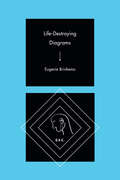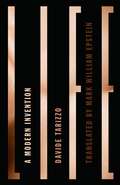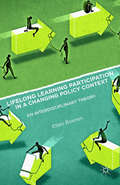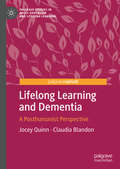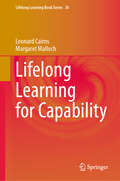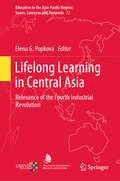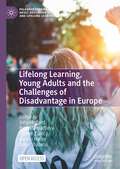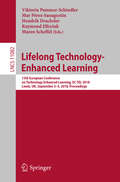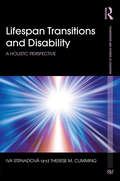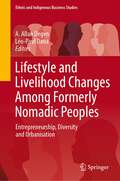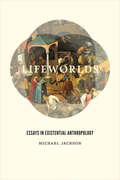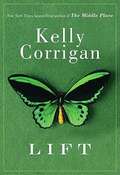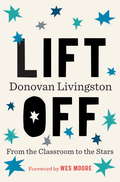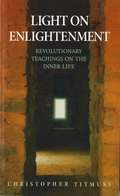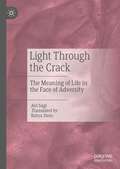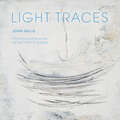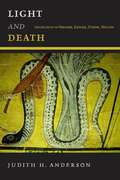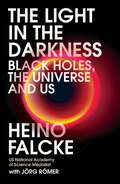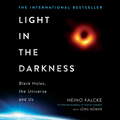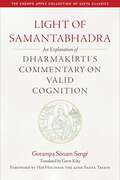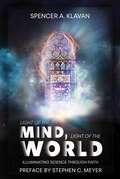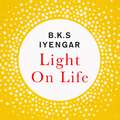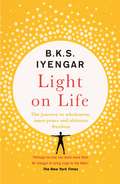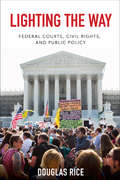- Table View
- List View
Life-Destroying Diagrams
by Eugenie BrinkemaIn Life-Destroying Diagrams, Eugenie Brinkema brings the insights of her radical formalism to bear on supremely risky terrain: the ethical extremes of horror and love. Through close readings of works of film, literature, and philosophy, she explores how diagrams, grids, charts, lists, abecedaria, toroids, tempos, patterns, colors, negative space, lengths, increments, and thresholds attest to formal logics of torture and cruelty, violence and finitude, friendship and eros, debt and care. Beginning with a wholesale rethinking of the affect of horror, orienting it away from entrenched models of feeling toward impersonal schemes and structures, Brinkema moves outward to consider the relation between objects and affects, humiliation and metaphysics, genre and the general, bodily destruction and aesthetic generation, geometry and scenography, hatred and value, love and measurement, and, ultimately, the tensions, hazards, and speculative promise of formalism itself. Replete with etymological meditations, performative typography, and lyrical digressions, Life-Destroying Diagrams is at once a model of reading without guarantee and a series of generative experiments in the writing of aesthetic theory.
Life: A Modern Invention (Posthumanities #44)
by Davide TarizzoThe word &“biology&” was first used to describe the scientific study of life in 1802, and as Davide Tarizzo demonstrates in his reconstruction of the genealogy of the concept of life, our understanding of what being alive means is an equally recent invention. Focusing on the histories of philosophy, science, and biopolitics, he contends that biological life is a metaphysical concept, not a scientific one, and that this notion has gradually permeated both European and Anglophone traditions of thought over the past two centuries.Building on the work undertaken by Foucault in the 1960s and &‘70s, Tarizzo analyzes the slow transformation of eighteenth-century naturalism into a nineteenth-century science of life, exploring the philosophical landscape that engendered biology and precipitated the work of such foundational figures as Georges Cuvier and Charles Darwin. Tarizzo tracks three interrelated themes: first, that the metaphysics of biological life is an extension of the Kantian concept of human will in the field of philosophy; second, that biology and philosophy share the same metaphysical assumptions about life originally advanced by F. W. J. Schelling and adopted by Darwin and his intellectual heirs; and third, that modern biopolitics is dependent on this particularly totalizing view of biological life. Circumventing tired debates about the validity of science and the truth of Darwinian evolution, this book instead envisions and promotes a profound paradigm shift in philosophical and scientific concepts of biological life.
Life: An Enigma, a Precious Jewel
by Daisaku IkedaThe Cosmos and Life, The Buddhist View of Life, Life and Death.
Lifelong Learning Participation in a Changing Policy Context: An Interdisciplinary Theory
by Ellen BoerenDrawing on the role of individuals, education and training providers and countries' social policy actions, and borrowing insights from psychology, sociology and economics, this book works towards an interdisciplinary theory of adult lifelong learning participation. It explores the fragmented evidence of why adults do or do not participate in adult lifelong learning activities and focuses on the relevance of policy, the social character and expected benefits of lifelong learning participation and discusses the potential implications for policy, practice and research.
Lifelong Learning and Dementia: A Posthumanist Perspective (Palgrave Studies in Adult Education and Lifelong Learning)
by Jocey Quinn Claudia BlandonThis book explores the potential for lifelong learning in dementia. A growing social issue, dementia has previously been understood as a wasteland for learning: at best, those with dementia are helped to hold on to some pre-existing skills. This book draws on extensive qualitative data with people with dementia and their families to demonstrate that new forms of learning can happen in dementia, with positive outcomes for both the learner and those around them. In doing so, this book demonstrates that those with dementia help us to understand learning differently, thus providing a breakthrough in our understanding and theorising of lifelong learning. Using posthuman theory to scaffold and discuss the findings, this pioneering book will appeal to scholars of dementia, lifelong learning and the posthuman.
Lifelong Learning for Capability (Lifelong Learning Book Series #34)
by Margaret Malloch Leonard CairnsThe book offers a well-grounded vision of the significant theory and application of the concept of Capability as a lifecourse and lifespan development. Capability is argued to be a necessary 21st century process and outcome (PROUT) of all learning development and activities across formal and informal places. Capability has been defined as a way of understanding people and organisations through their holistic approach which moves beyond Competence to show how potential ability, self-efficacy, and values, as basic, intertwined elements lead to how Capable People and Capable Organisations offer flexibility and adaptability in action. It presents the case for Capable Four-Dimensional Learners who can thrive in various situations to solve unfamiliar problems and challenges. These learners have developed and can demonstrate Lifelong commitment to learning. In addition, four-dimensional learners need to experience a broad range of areas of Lifewide learning. Further, learners need to include learning of some aspects in depth, that is, Lifedeep learning. An understanding of the impact of technology, as a significant element in human learning beyond being operational tools, as Lifetech learning is vitally necessary. How this four-dimensionality relates to better sustainability awareness and application through personal and organisational Capability is outlined. This book emerged from many years of theory development and research with critical examination of the Capability Concept and its application as a Learning Model. It is written for students, teachers and administrators at all levels of Education, and everyone interested in human learning theory and application.
Lifelong Learning in Central Asia: Relevance of the Fourth Industrial Revolution (Education in the Asia-Pacific Region: Issues, Concerns and Prospects #72)
by Elena G. PopkovaThe book focuses on the issue of adapting the higher education system to the Fourth Industrial Revolution. Lifelong learning is suggested as a prospective path for this adaptation. The book includes a discussion of empirical experience and the forms of lifelong learning in Central Asia. The book also explains the essence, discusses practical experience, and offers practical recommendations for improving the management of the development of Educational Technology (EdTech) and higher education 4.0 in the conditions of the Fourth Industrial Revolution in Central Asia. The book explains the impact of the innovative economy and smart regulation of education on lifelong learning in Central Asia. It offers a competency-based approach and applied educational technologies for lifelong learning in the Central Asian countries. The book’s novelty lies in its comprehensive exploration and detailed discussion of the unique experience of developing lifelong learning in Central Asia. The scientific and practical value of the book also lies in its proposal of a new paradigm for developing higher education in the Fourth Industrial Revolution. In this new paradigm, the higher education system emerged as the driving force of the Fourth Industrial Revolution through establishing Universities 4.0 and the intensified development of EdTech. The primary target audience of this book consists of scholars studying higher education issues. For them, the book reevaluates the concept of lifelong learning in the contemporary context of the Fourth Industrial Revolution.
Lifelong Learning, Young Adults and the Challenges of Disadvantage in Europe (Palgrave Studies in Adult Education and Lifelong Learning)
by John Holford Pepka Boyadjieva Sharon Clancy Günter Hefler Ivana StudenáThis open access book challenges international policy ‘groupthink’ about lifelong learning. Adult learning – too long a servant of business competitiveness – should be reimagined as central to democratic society. Young adults, especially from disadvantaged backgrounds, engage more in education and training, and learn more day-to-day at work, if provision is democratically organised and based on enduring and inclusive institutional networks, and when jobs encourage and reward the acquisition of skills. Using innovative qualitative and quantitative methods, the contributors develop a critical perspective on dominant policies, investigating – across the European Union and Australia – how ‘vulnerable’ young adults experience programmes designed to improve their ‘employability’, and how ‘skills for jobs’ policies squeeze out wider – and wiser – ideas of what education and training should do. Chapters show why some provision works for those with poor educational backgrounds, why labour market and educational institutions matter so much, how adult education can empower and expand people’s agency, and the challenges of using artificial intelligence in lifelong learning policy-making. Several investigate the pivotal role of workplace learning in organisational life, and in learning during ‘emerging adulthood’. Important comparative studies of workplace learning in the metals, retail and adult education sectors show the role of management, trade unions and social movements in young adults’ learning.
Lifelong Technology-Enhanced Learning: 13th European Conference on Technology Enhanced Learning, EC-TEL 2018, Leeds, UK, September 3-5, 2018, Proceedings (Lecture Notes in Computer Science #11082)
by Hendrik Drachsler Mar Pérez-Sanagustín Viktoria Pammer-Schindler Raymond Elferink Maren ScheffelThis book constitutes the proceedings of the 13th European Conference on Technology Enhanced Learning, EC-TEL 2018, held in Leeds, UK, in September 2018.The 42 full and short papers, 7 demo papers, and 23 poster papers presented in this volume were carefully reviewed and selected from 142 submissions. This year, the European Conference on Technology-Enhanced Learning (EC-TEL) will engage researchers, practitioners, educational developers, entrepreneurs and policy makers in a joint discussion on how to put science, technology and practice at the service of learning to embrace these challenges on the topic: Lifelong technology enhanced learning: Dealing with the complexity of 21st century challenges. Chapter "" is available open access under a Creative Commons Attribution 4.0 International License via link.springer.com.
Lifespan Transitions and Disability: A holistic perspective (Foundations and Futures of Education)
by Iva Strnadová Therese M. CummingThis book brings a refreshing perspective to preparing students with disabilities and their families for all aspects of independent life. Many of the transitions experienced by younger children set the stage for future changes, yet do not receive the attention they deserve in the literature. This publication offers a strengths-based approach that includes philosophical perspectives and evidence-based practices to assist this vulnerable population with lifespan changes and challenges. Each chapter addresses transitional needs and their assessment, and relevant interventions from the perspectives of an application to schools, families and communities. Multicultural perspectives are integral to all these chapters. The book covers transition from: - home to early childhood education - early childhood education to primary school - primary school to secondary school - primary school to special settings - juvenile justice settings back into the community - school to work - school to further education or training - post-school settings to retirement. Lifespan Transitions and Disability: A holistic perspective is a necessary companion for postgraduate education students and researchers who have an interest in exploring the nature and context of special and inclusive education today.
Lifestyle and Livelihood Changes Among Formerly Nomadic Peoples: Entrepreneurship, Diversity and Urbanisation (Ethnic and Indigenous Business Studies)
by Léo-Paul Dana A. Allan DegenContemporary policymakers, as their predecessors, continue to view nomadic people as a weak minority, and their way of life and raising livestock as a backward and inefficient paradigm. Wherever nomads are not the dominant group, the trend to settle them continues even today as in the past. This book describes the changes forced upon formerly nomadic groups and how they still attempt to maintain their traditional, social, and cultural practices in their new settings. The book deals with the several modes of livelihood of these communities, including entrepreneurship, and demonstrates the impact of investment-oriented urbanization policies leading to eviction from ancestral lands, and hurdles for nomadic mobility, ultimately threatening their survival. The book illustrates how some groups like the Borana and the Maasai practice livelihood diversity and raise productive livestock, and how other groups migrate to urban centers in search of employment and remit money to family members left in the rural areas. The book aims to raise awareness among the research community, especially those who work on regional and demographic labor policies. It helps in understanding why society needs to help build business and livelihood strategies without harming the values of nomadic groups.
Lifeworlds: Essays in Existential Anthropology
by Michael JacksonMichael Jackson's Lifeworlds is a masterful collection of essays, the culmination of a career aimed at understanding the relationship between anthropology and philosophy. Seeking the truths that are found in the interstices between examiner and examined, world and word, and body and mind, and taking inspiration from James, Dewey, Arendt, Husserl, Sartre, Camus, and, especially, Merleau Ponty, Jackson creates in these chapters a distinctive anthropological pursuit of existential inquiry. More important, he buttresses this philosophical approach with committed empirical research. Traveling from the Kuranko in Sierra Leone to the Maori in New Zealand to the Warlpiri in Australia, Jackson argues that anthropological subjects continually negotiate imaginatively, practically, and politically their relations with the forces surrounding them and the resources they find in themselves or in solidarity with significant others. At the same time that they mirror facets of the larger world, they also help shape it. Stitching the themes, peoples, and locales of these essays into a sustained argument for a philosophical anthropology that focuses on the places between, Jackson offers a pragmatic understanding of how people act to make their lives more viable, to grasp the elusive, to counteract external powers, and to turn abstract possibilities into embodied truths.
Lift
by Kelly CorriganKelly Corrigan's first book, The Middle Place, was a New York Times, USA Today, Publishers Weekly, IndieBound, Washington Post, Boston Globe, and San Francisco Chronicle bestseller.- Kelly gives over 100 speeches a year, and her website for friends and family of breast cancer patients, CircusOfCancer.org, welcomes over 10,000 visitors a month.- On You Tube, Kelly has become a sensation: Her video Transcending has been viewed more than 4 million times.
Lift Off: From the Classroom to the Stars
by Wes Moore Donovan LivingstonAn inspirational rallying call about education, race, and the true nature of equality—the Harvard Graduate School of Education convocation speech praised as “powerful” by Hillary Rodham Clinton in Teen Vogue and “inspired” by Justin Timberlake In emotionally charged spoken-word poetry, Livingston shares a message of hope and hard truths, declaring that education can become an equalizer only if we first acknowledge the inequality and racial divides holding back America’s future. Livingston is dedicated to helping young people reach their celestial potential, and in his galvanizing commencement address, now adapted for the first time to the page, he calls on us to raise our voices on behalf of all children, as their brighter futures can light up our own. Together, we can lift off!
Light On Enlightenment: Revolutionary Teachings On The Inner Life
by Christopher TitmussMany in the West today are familiar with the benefits offered by meditation and mindfulness, and keen to understand more about Buddhism. Written by a former journalist and Buddhist monk, Light on Enlightenment is an accessible guide to the Buddhist teachings, offering insight and inspiration for daily life, as well as a lucid guide on the path to enlightenment. Christopher Titmuss draws upon the experiences of real people to show how Buddhist teachings are relevant to the problems of Western society, and can exert a valuable influence on science, psychotherapy, green issues, our lifestyles and communities. Light on Enlightenment opens up for all of us the possibility of inner transformation and regaining control over our lives.
Light Through the Crack: The Meaning of Life in the Face of Adversity
by Avi SagiAn epidemic such as COVID-19 challenges life’s very order and meaning, interferes in our relations with others, and breaks apart our routine. It raises many questions in the realms of ethics, politics, theology, psychology, and beyond. Perhaps more than anything else, it prompts us to ponder: what does this encounter with widespread anguish and distress imply about the human self-perception as sovereign rulers of Earthly life?In this book, renowned thinker Avi Sagi explores the existential matters brought to the philosophical fore by the pandemic. He shows how we, when thrown into the terror of a crisis, carry the traditions, values, ideals, hopes, failures, and habits that constitute our lives, all shaping the way we grapple with questions seemingly resolved. We may then find that the crack that opens up at times of sorrow can also be a moment of discovery. Sagi analyzes various ways of confronting the crack now at the heart of our existence. What emerges is a clear normative statement: We are not only what we were but also what we can be, and we can create a world of meaning by standing together with others.
Light Traces (Studies In Continental Thought Ser.)
by John Sallis Alejandro Arturo VallegaWhat is the effect of light as it measures the seasons? How does light leave different traces on the terrain-on a Pacific Island, in the Aegean Sea, high in the Alps, or in the forest? John Sallis considers the expansiveness of nature and the range of human vision in essays about the effect of light and luminosity on place. Sallis writes movingly of nature and the elements, employing an enormous range of philosophical, geographical, and historical knowledge. Paintings and drawings by Alejandro A. Vallega illuminate the text, accentuating the interaction between light and environment.
Light and Death: Figuration in Spenser, Kepler, Donne, Milton
by Judith H. AndersonLight figures being; darkness, death. Bridging mathematical science, semantics, rhetoric, grammar, and major poems, Judith H. Anderson seeks to negotiate writings from multiple disciplines in the shared terms of poiesis and figuration rather than as cultural opposites. Analogy, a type of metaphor, has always been the connector of the known to the unknown, the sensible to the infinite. Anderson’s study moves from the figuration of light and death to the history of analogy and its pertinence to light in physics and metaphysics, from Kepler to Donne, Spenser, and Milton. Topics proliferate: creativity, optics, the relation of literature to science, the methodology of thought and argument, and the processes of narrative, discovery, and interpretation.
Light in the Darkness: Black Holes, The Universe and Us
by Professor Heino Falcke Jörg RömerAs featured in THE EDGE OF ALL WE KNOW - the new Netflix documentary about Black HolesFor readers of Stephen Hawking, a fascinating account of the universe from the perspective of world-leading astrophysicist Heino Falcke, who took the first ever picture of a black hole.10th April 2019: a global sensation. Heino Falcke, a man "working at the boundaries of his discipline and therefore at the limits of the universe" had used a network of telescopes spanning the entire planet to take the first picture of a black hole.Light in the Darkness examines how mankind has always looked to the skies, mapping the journey from millennia ago when we turned our gaze to the heavens, to modern astrophysics. Heino Falcke and Jorg Romer entertainingly and compellingly chart the breakthrough research of Falcke's team, an unprecedented global community of international colleagues developing a telescope complex enough to look directly into a black hole - a hole where light vanishes, and time stops.What does this development mean? Is this the beginning of a new physics? What can we learn from this about God, the world, and ourselves? For Falcke, astrophysics and metaphysics, science and faith, do not exclude one another. Black Hole is both a plea for curiosity and humility; it's interested in both what we know, and the mysteries that remain unsolved.
Light in the Darkness: Black Holes, The Universe and Us
by Professor Heino Falcke Jörg RömerAs featured in THE EDGE OF ALL WE KNOW - the new Netflix documentary about Black HolesFor readers of Stephen Hawking, a fascinating account of the universe from the perspective of world-leading astrophysicist Heino Falcke, who took the first ever picture of a black hole.10th April 2019: a global sensation. Heino Falcke, a man "working at the boundaries of his discipline and therefore at the limits of the universe" had used a network of telescopes spanning the entire planet to take the first picture of a black hole.Light in the Darkness examines how mankind has always looked to the skies, mapping the journey from millennia ago when we turned our gaze to the heavens, to modern astrophysics. Heino Falcke and Jorg Romer entertainingly and compellingly chart the breakthrough research of Falcke's team, an unprecedented global community of international colleagues developing a telescope complex enough to look directly into a black hole - a hole where light vanishes, and time stops.What does this development mean? Is this the beginning of a new physics? What can we learn from this about God, the world, and ourselves? For Falcke, astrophysics and metaphysics, science and faith, do not exclude one another. Black Hole is both a plea for curiosity and humility; it's interested in both what we know, and the mysteries that remain unsolved.(P)2021 Headline Publishing Group Limited
Light of Samantabhadra: An Explanation of Dharmakirti's Commentary on Valid Cognition
by Gorampa Sönam SengéAn illuminating gateway to Indian philosophy and its explication in Tibet.Among the many works produced in the rich philosophical tradition of India&’s classical age, few have had more impact than Dharmakirti&’s Commentary on Valid Cognition (Pramanavarttika). Composed in India in the seventh century, it became the cornerstone for the study of logic and epistemology in the Tibetan Buddhist tradition. An important addition to any collection for the Sakya practitioner, Light of Samantabhadra translates the work of one of the premier scholars of the Sakya school, Gorampa Sonam Sengé (1429–89). Gorampa here illuminates the first two chapters of Dharmakirti&’s treatise, those on using inference to enlighten oneself (svarthanumana) and on establishing valid cognition (pramanasiddhi), both to determine the authority of the Buddha as a valid teacher and to eliminate the cognitive obstacles to awakening. The root text is composed in compact verses, and these are translated here along with Gorampa&’s word-by-word commentary that reveals their often-veiled meanings. These chapters explore key issues in the philosophy of language and the nature of conventional designation, the way to employ sound reasoning, the proof of past and future lives, and the way to eliminate the view of self. In the skilled hands of translator Gavin Kilty, these insights are made accessible to contemporary readers.
Light of the Mind, Light of the World: Illuminating Science Through Faith
by Spencer KlavanThe world is not a machine. Humanity is not a mistake. For centuries, a grim anti-human outlook has taken hold of the public imagination, teaching us all to view ourselves as random products of a cruel and uncaring natural world. Today, from apocalyptic environmentalism to twisted eugenics and dystopian bionic augmentation, movements are rising around the world to dispense with humanity or subordinate it to a pitiless mechanical logic. For many, it has come to seem as if the human spirit is obsolete, religious faith is illusory, and mankind is destined to be extinguished or surpassed. Some might even see the end of humanity as a good thing. But that is not our future. Light of the Mind, Light of the World tells a daring new story about how we got here, and how we can chart a better path forward. Surveying the history of science and faith from the astronomers of Babylon to the quantum physicists of postwar Europe and America, classicist and scholar Spencer A. Klavan argues that science itself is leading us not away from God but back to him, and to the ancient faith that places the human soul at the center of the universe. Reconciling the discoveries of science with the truths of the Bible, Klavan shows how the search for knowledge of the natural world can help illuminate the glories of its Creator, and how the latest developments in physics can help shatter the illusion of materialism.
Light on Life: The Yoga Journey to Wholeness, Inner Peace and Ultimate Freedom
by B.K.S. IyengarA must-have for anyone who practises yoga or is interested in the teachings of the East.B.K.S. Iyengar, whose teachings on yoga are followed throughout the world, reflects upon his lifetime's experience on the yoga path. The structure of the book follows the different aspects of that path (from Freedom Awaits, through The Physical Body, The Energy Body, The Mental Body, The Intellectual Body, The Divine Body to Living in Freedom) and provides a learning framework for yoga as well as an invaluable discourse on life. 'Iyengar knows what the body needs, and he's introduced to the West the Easterner's best path to health and well-being' - TIME Magazine'Revelations from a lifetime of studying yoga' - The Washington Post 'Light on Life is rich in yoga philosophy and methodology. But unlike his previous writings, this new book is full of autobiographical anecdotes' - The New York Times 'Mr Iyengar reveals in Light on Life the 'heart of yoga' that he personally discovered through more than 70 years of disciplined, daily practice ... [including] the precise ways that yoga can transform our lives and help us live in harmony with the world around us' - Yoga Journal(P) 2019 Hodder & Stoughton Ltd
Light on Life: The Yoga Journey to Wholeness, Inner Peace and Ultimate Freedom (Iyengar Yoga Bks.)
by B.K.S. IyengarA must-have for anyone who practises yoga or is interested in the teachings of the East.B.K.S. Iyengar, whose teachings on yoga are followed throughout the world, reflects upon his lifetime's experience on the yoga path. The structure of the book follows the different aspects of that path (from Freedom Awaits, through The Physical Body, The Energy Body, The Mental Body, The Intellectual Body, The Divine Body to Living in Freedom) and provides a learning framework for yoga as well as an invaluable discourse on life.'Iyengar knows what the body needs, and he's introduced to the West the Easterner's best path to health and well-being' - TIME Magazine'Revelations from a lifetime of studying yoga' - The Washington Post 'Light on Life is rich in yoga philosophy and methodology. But unlike his previous writings, this new book is full of autobiographical anecdotes' - The New York Times 'Mr Iyengar reveals in Light on Life the 'heart of yoga' that he personally discovered through more than 70 years of disciplined, daily practice ... [including] the precise ways that yoga can transform our lives and help us live in harmony with the world around us' - Yoga Journal'The Michelangelo of yoga' - BBC TV
Lighting the Way: Federal Courts, Civil Rights, and Public Policy (Constitutionalism and Democracy)
by Douglas RiceDo our federal courts, including the Supreme Court, lead or merely implement public policy? This is a critical question in the study and practice of law, with a long history of continued dispute and contradictory evidence. In Lighting the Way, Douglas Rice systematically examines both sides of this debate. Introducing compelling new data on the policy focuses of federal courts, Rice presents the first long-term, comprehensive consideration of the judicial agenda. In doing so, he details the essential role of the Supreme Court and other federal courts in directing attention to issues in American politics through influential relationships with Congress, the presidency, and the public. The dynamics Rice illustrates grow from the strengths of political constituencies in various policy areas and the constitutional powers accorded to the courts. Lighting the Way provides strong evidence that, as long argued but never empirically demonstrated, the courts systematically lead the attention of other institutions on civil rights. The research speaks to a broad and growing literature in political science and sociolegal research on the interactive nature of policymaking and the critical role of legal institutions and social movements in shaping policy agendas.
